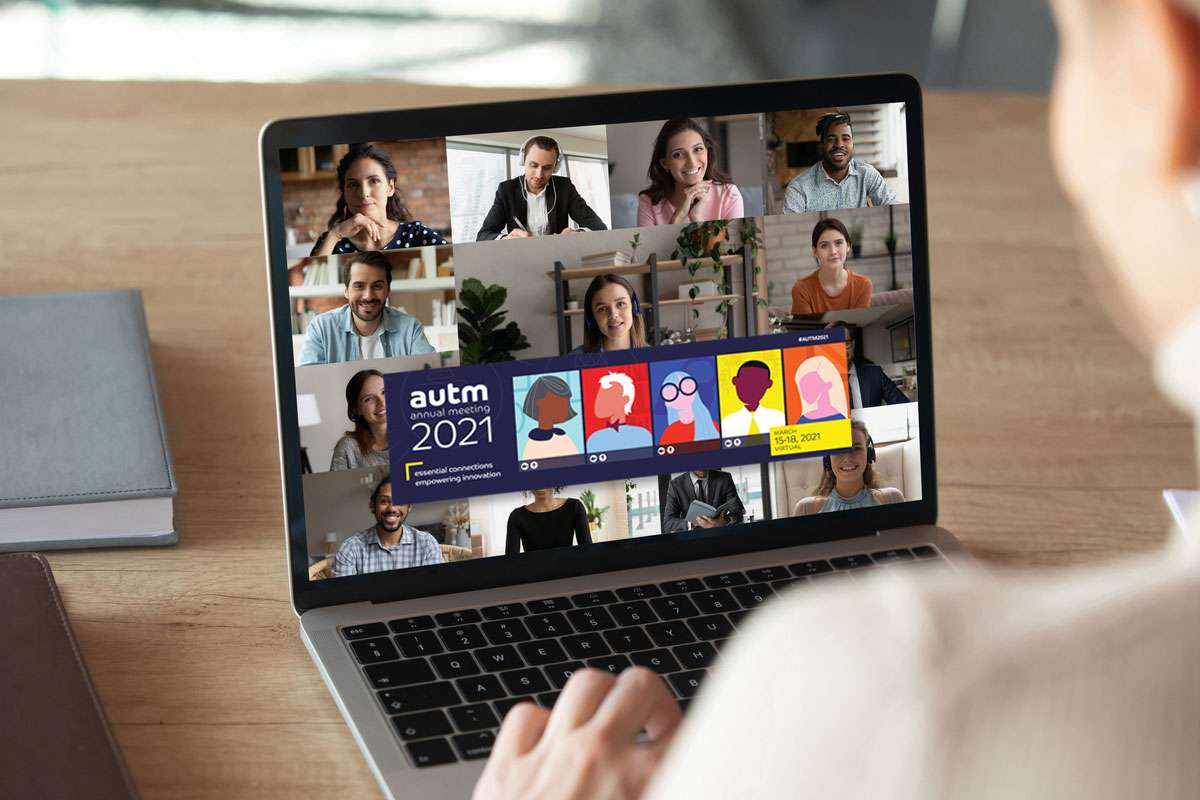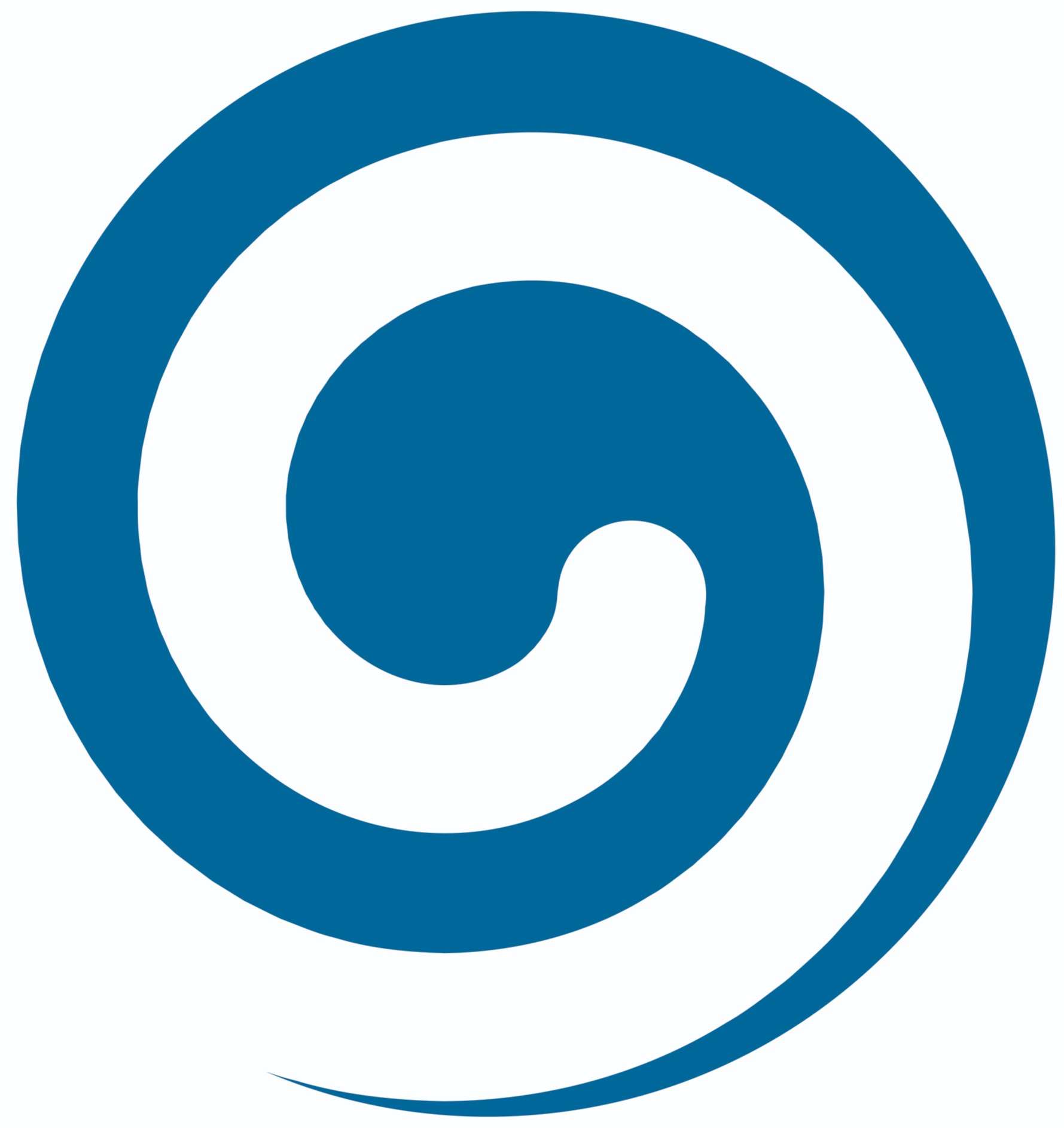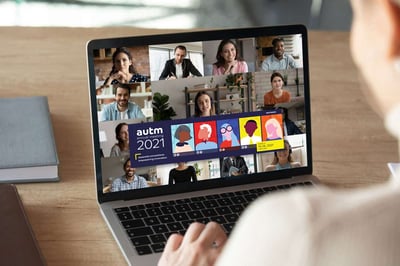Creative Solutions Spark Association Engagement


By Yodelpop Team / Dec 6, 2021

For membership‑based associations, one of the toughest challenges of the COVID‑19 pandemic was promoting association engagement.
Many associations felt the pain and financial strain of moving an annual convention or conference to a digital platform. That’s why we wanted to chat with Paul Stark, marketing and communications director at the Association of University Technology Managers (AUTM). I appreciate Paul’s honest appraisal of the challenges his team has faced and their creative approach to working in this new reality.
AUTM is a nonprofit with more than 3,200 members and a mission of educating, promoting, and inspiring professionals and supporting the development of academic research that changes the world. The conversation with Paul shows how AUTM harnessed the power of collaborative partnerships and technology to drive association engagement and share their mission with the world, despite the challenges of the pandemic.
Yodelpop: In partnering with nonprofits and associations, we've found that associations have some unique considerations. What kind of advice do you have for associations that want to expand engagement? Are there special challenges you face with the pandemic?
Paul: Nonprofit associations like ours are always striving to add value to our members, to our stakeholders, and show that we're relevant to our industry and the needs of our community. This has been an especially trying time because one of the big events for most associations is the conference where we bring everybody together and they get that human connection, that face‑to‑face time. It's really important, not just to give them opportunities for education to advance their career, but also to conduct business, to reestablish those relationships after a year of being apart from the last annual meeting. We count on this signature event to really drive our membership, to really get people jazzed about what we do.
Yodelpop: Right, and not having that big event probably affects the bottom line as well.
Paul: Yes, the annual meeting is a big revenue generator for us, so it was a hit on the financial front as well. So the last couple years, it's been so important for us to have strong marketing, being clever and creative about reaching out to our audience and still demonstrating that value that we bring as an association. That's why they're members.
It's really important for us to still have that bond with them, even though it's mostly electronic. That's why marketing has become even more important in these times to make sure that we continue to be engaged, to monitor that engagement, to be sophisticated about it, and to track what we're doing.
Yodelpop: Does that feel like a new direction?
Paul: That definitely challenges the skill sets of most of the small marketing teams that handle these associations—to see how we can reinvent ourselves in the last two years. And I think that's the silver lining: We've been pushed to our marketing limits to come up with some clever ways to engage our audience through our marketing collateral, through our marketing campaigns. We've also discovered some new talents and skills that we think we're going to carry over, even on the other side of the pandemic—knock on wood. There are some cool things that we've learned along the way with working automation, with virtual meetings, that we can use to complement what we've done prior to this tough and challenging time.
Yodelpop: So the pandemic has pushed you and your team to try different things. Are there any specific strategies you have tried that have had good results for you?
Paul: We've discovered virtual meetings are a good way to reach an audience that maybe hasn't had the budget before to attend an in‑person meeting. I think we've expanded our audience a little bit by reaching out to different segments that may not normally have attended it.
We’ve also used the virtual meetings as a way to give more opportunities to reach leadership for our association. Every year we have elections, and this past year was the first time we did what we call “water cooler.”
Yodelpop: How does that work?
Paul: That's an opportunity in a kind of a town hall environment to get to know the candidates that are vying for positions on the board of directors. It happened midway through the pandemic, so people already had kind of a feel for chat and Zoom and Hollywood Squares (I guess I'm dating myself if I throw that out there).
It was a terrific way to use the technology that was thrust upon us to provide greater transparency to our candidates for the board of directors. We're about ready to go into another election cycle, and that's one of the things that we're going to continue doing.
Yodelpop: Are there other examples of pandemic‑related innovation you can think of?
Paul: We also had a good virtual annual meeting. There were some things that we did with digital content that we hadn't done before. For example, we did a news desk where we did interviews with different subject matter experts from across the different corners of the association. It was a chance to inform our community about what's going on. It was a chance for some of the volunteers to get in front of this audience and introduce themselves. I also think the pandemic really accelerated our video skills.
Yodelpop: What changed in your video strategy?
Paul: We discovered that we leave a lot of video on the cutting room floor. We became more adept at using that little piece to help promote meetings. We had done a Zoom call with our keynote speakers, and we were able to get their okay to take that and turn it into a little production piece and put some music behind it. Those are the kinds of skills we had to develop under the pandemic, because everything was online. There was a lot more video, and why waste all that video? Use it as a way to get your message out, and use it to promote future events.
We refined our script‑writing skills and got better at keeping people on message. Those skills are going to really be helpful moving forward, even after the pandemic, because we think video is definitely a really compelling format. Now we feel like we've got 10 years of learning in 6 months, because we had to.
Yodelpop: Are there other aspects of your association marketing plan and engagement strategy that have accelerated or changed because of the pandemic?
Paul: We became more digitally focused, even more focused on metrics, beyond the usual click rates—just kind of understanding who's watching it and targeting more to different segments or audiences as well with different messages.
Yodelpop: While so much has been lost in the pandemic—there are also all these things we've learned to do, and we learned to do them so quickly. We have to remember how remarkable that is.
Paul: I think our association is helping make the world a better place by moving some of these great ideas from campus labs out into the marketplace. All the scientific research that went into treatments and vaccines for COVID was really driven, in part, from the research that is coming out of these campuses. For us, it was a golden opportunity to showcase how this research can really address some of the issues that affect the world—not just the people in your backyard.
Yodelpop: So you really found there was a direct connection between your membership’s mission and the pandemic.
Paul: Yes, and we put together some tools to spotlight that, and we got in front of a lot of people to let them know what we're doing. So hopefully that momentum continues and we continue to take advantage of that moment in the spotlight to make people—our stakeholders, our policy makers—aware of the work that we're doing.
But, as you know, we're also about memberships. So hopefully we can leverage that to say, “Hey, don't you want to be part of this group that did such great work?”
Yodelpop: That leads into one of the big questions I wanted to talk to you about. One thing that I've been hearing coming out of associations is that there's a challenge in deploying the content that you have access to both for education and development of current members and for marketing to prospective members. Have you found ways to deal with that?
Paul: It gets back to demonstrating our relevance to our community, but also trying to expand that community. So we're constantly testing different marketing methods to expand that audience. We are playing around with paid media as a way to reach out to a different audience that normally wouldn't be aware of us. We struggle sometimes because we have this group of people that know us and love us, and they're members. But we need to continue pushing that envelope to reach other audiences out there on the periphery that could also benefit from some of the content or services that we provide.
For example, we’re working more and more with marketing automation to understand behavior on our website, or how we get those people to the website, and how they're responding to the content—how we can use our website to give them just‑in‑time content that is relevant to them. We're also using paid media as a way to reach different audiences, increasing awareness. We don't have a huge budget, so for us, it's little bite‑sized tests, and we try to glean as much learning from that as we can. And we rely a lot on outside experts, like yourself, because we can't really afford an in‑house expert.
Yodelpop: But you are experts when it comes to your mission.
Paul: We understand our community. We understand the environment that we work in, marketing-wise, the messaging, and our strategy. So we really rely a lot on outside experts to say, “Okay, here are the things that we know we should test out, clearly define some objectives, and then be very careful about monitoring and see what kind of ROI we get on that investment in our testing.”
We're always challenged with, how do we continue to grow our membership or reduce our churn rate? We rely a lot on partners to help us in that area.
Yodelpop: You've got all this great content. We've developed some effective processes for helping to get it out there.
Paul: It's absolutely valuable. It's a chain of content. The members of our association are the ultimate subject matter experts, but they talk in a language specific to them, especially in the scientific community. On the marketing side, we help translate that into something that a broader audience can appreciate, using social media, for example.
We've been fortunate enough to work with partners in these different areas, like social media and paid media, where they start to get a feel for the lingo and the messaging. We incorporate them into our team and our team meetings. They're like another staff person, but they also have all this other vast knowledge that we, as full‑time staff people, don't have the time for. I'm a generalist because I have to be in our small marketing department. But that also means that I can't always be an expert on social media and marketing automation. And that's where we really turned for some help with some outside assistance.
Yodelpop: Is there anything else really that's top of mind for you when it comes to succeeding with marketing efforts for an association? Any big ideas that you want to share?
Paul: We're all working virtually, and maybe someday, we'll pop into an office. That's not going to be the case for AUTM because our staff is scattered all over the place; we would work virtually anyway. I think you have to adapt because you can't go down to the lunchroom and share a cup of coffee with somebody, or have a cocktail hour on Thursdays. I've been really impressed with how, not just my staff, but other folks that we work with, have been able to adjust to this world where we're going to get together virtually—just like you and I are.
The tools that we've been able to use for that—project management tools like Asana and Microsoft Teams—it's really quite an evolution in a short amount of time. And I think it requires a certain amount of trust with your colleagues because you don't see them, you don't walk down the hall and say, oh, I see Jackie is hard at work. I think that's the amazing point in time that we're at right now that we've learned to get stuff done, even though we're working out of our living rooms or offices at home.
When it comes to association marketing, be creative, be attentive to the organization’s mission and members’ needs, develop fruitful collaborative partnerships, and find innovative ways to share the content and resources you already have.
Yodelpop Team

